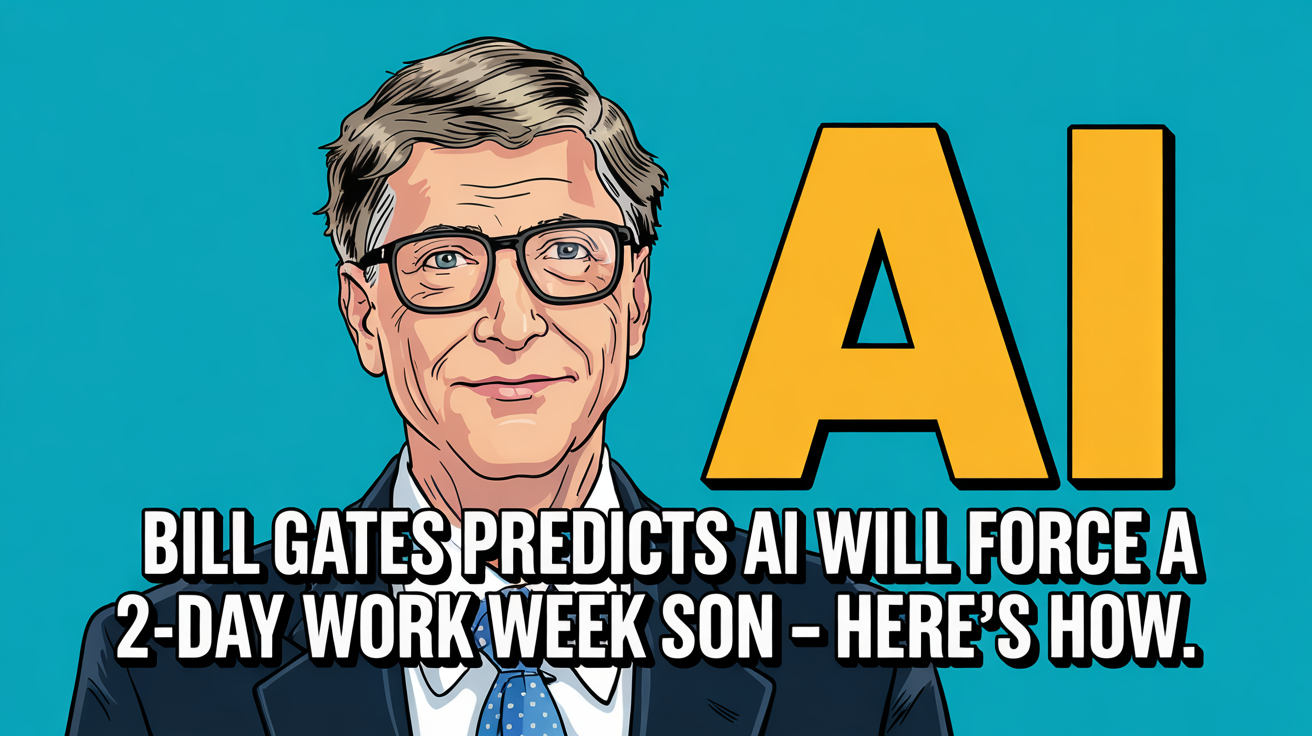Could the traditional 5-day work week soon be a thing of the past? According to Microsoft founder Bill Gates, the answer is yes — and artificial intelligence (AI) is the reason why.
In a recent appearance on The Tonight Show Starring Jimmy Fallon, Gates shared his bold prediction: AI will become so advanced within the next 10 years that humans may only need to work two days a week. That’s right — a dramatic shift in work-life balance may be on the horizon.
A Radical Shift in the Way We Work
For decades, the 9-to-5, Monday-to-Friday grind has been deeply embedded in modern society. While many people have adapted to this structure, others have raised concerns about burnout, mental health, and work-life imbalance — especially in extreme cases where people work 100+ hours per week.
But Gates envisions a future where AI handles the majority of routine and complex tasks currently done by humans. From manufacturing and logistics to education and healthcare, intelligent systems could step in to fill the gaps.
“It’s kind of profound,” Gates said. “We don’t have enough doctors or mental health professionals, but [AI] brings with it so much change. What will jobs be like? Should we just work two or three days per week?”
The Rise of Artificial General Intelligence (AGI)
Gates is pointing toward a world powered by Artificial General Intelligence — AI that can learn, adapt, and perform across a wide range of human tasks. In such a future, many current jobs could be automated completely, especially those involving manufacturing, agriculture, and physical labor.
But not everything will be handed over to machines. Gates believes that certain roles — like sports, creative arts, and emotionally driven human interactions — will remain in human hands simply because we want them to.
“We won’t want to watch robots play baseball,” Gates joked. “Some things we’ll reserve for ourselves.”
What About the Workers Left Behind?
While this vision may sound utopian, it raises a critical question: what happens to the people whose jobs are replaced by machines?
AI pioneer Geoffrey Hinton has warned of an increasingly severe wealth gap as machines replace human labor. Without a plan to support displaced workers, the benefits of a shorter work week may be felt only by a privileged few.
Ethical concerns have also been raised — from who controls the data and systems behind AI, to whether this technology can truly be trusted. Even the Vatican has issued warnings about the moral risks of unchecked artificial intelligence.
The Bottom Line
Bill Gates’ prediction of a 2-day work week powered by AI paints a hopeful picture — one where people can live fuller lives with more free time. But it also highlights deep questions about economic stability, ethics, and human purpose in an AI-driven world.
Are we on the edge of a golden age of productivity and leisure? Or will the AI revolution leave millions behind? One thing is clear: change is coming — fast.


